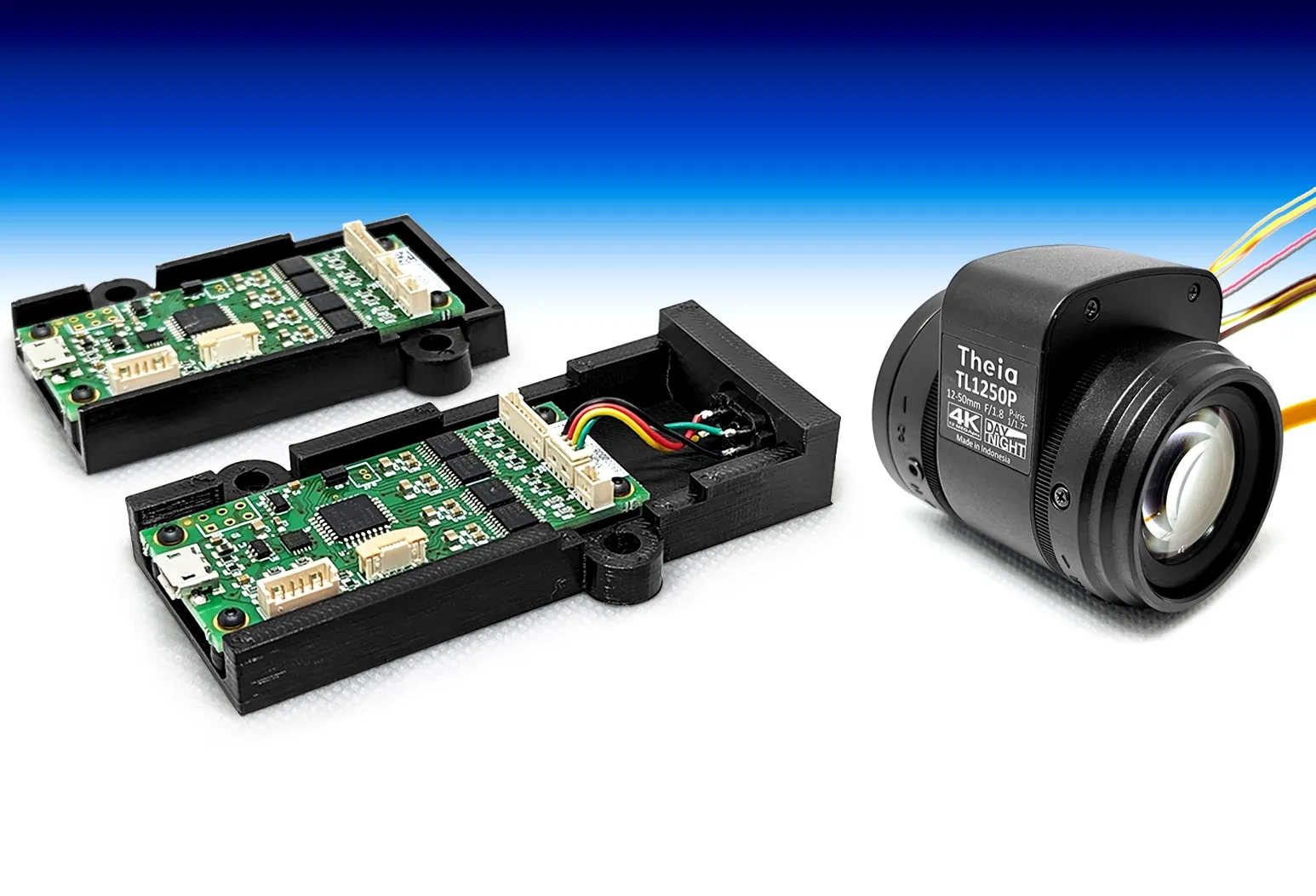
Theia Technologies’ MCR IQ™ Motor Control Board series and new MCR IQ™ application facilitate operation of Theia's motorised lenses, allowing users to control zoom, focus, P-iris and optional IR filters. Theia’s motorised lenses are designed for use in high detail imaging tasks such as ANPR or OCR in intelligent traffic systems.
The motor control boards include the MCR IQ™ application with graphical user interface (GUI) and Python module to easily send and receive commands from the board for rapid and convenient evaluation and integration of the lenses. The user doesn’t have to worry about formatting the commands for the board.
The Theia MCR IQ Python module converts motor steps into the specific commands required by the board and sends the commands to the board. The companion GUI (see Fig.1) allows the user to easily operate the lens through the MCR IQ™ control board. These programs are built and tested on Windows but are easily adapted for other operating systems.

The motor control board connects to the host computer via USB, UART, or I2C connection. The byte-string commands are the same regardless of connection method. The Theia MCR IQ Python module assumes a USB connection to a computer with a Windows operating system. The user may change this software to fit their needs.
The purchase of the board now includes access to this application through a royalty-free licence and by using the application software (GUI and/or Python code), the user agrees to the terms of Theia’s (standard BSD) license.
Theia’s motorised lenses come in 4-10mm, 9-36mm, and 12-50mm focal ranges, provide up to 12 megapixel, 300lp/mm resolution and are excellently IR-corrected from 435 – 940nm to maintain their high-resolution performance in the near IR spectrum. The lenses are offered in manual, DC Auto, or P-iris versions, in CS, C mount, and D25 board mount depending on the model. The lenses cover up to 1/1.7” or ½.3” sensor formats depending on the model.
The fully motorised lenses come with motorised zoom and focus and combinations with optional integrated IR cut or bandpass filters and photo-interrupter motor stops. The motorised lenses allow for remote set up and occasional zooming and re-focus.
Content produced in association with Theia Technologies









